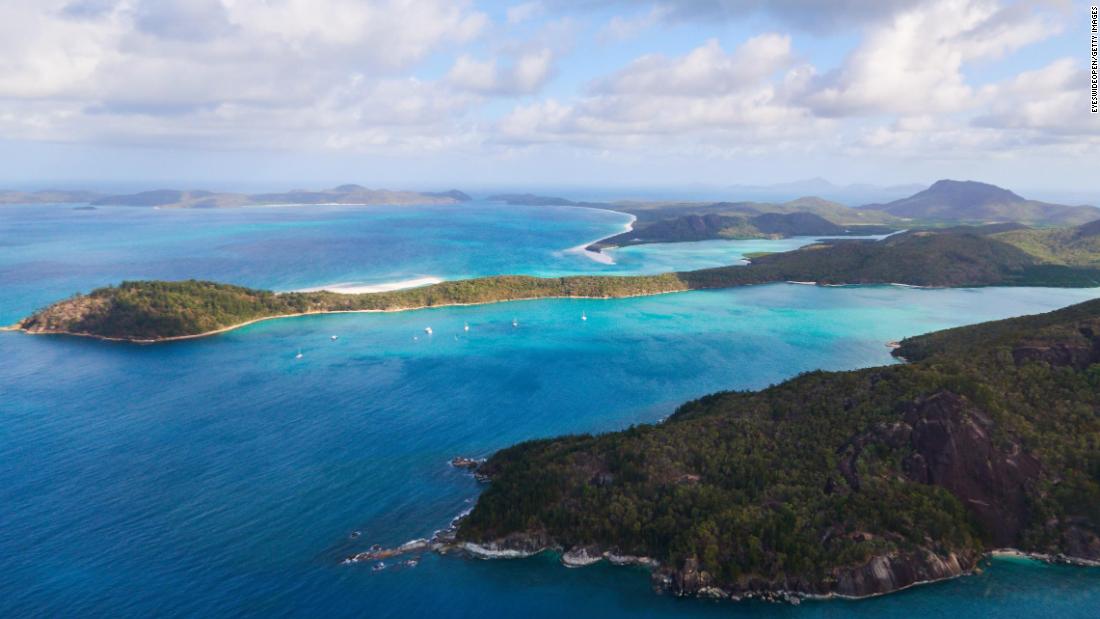
[ad_1]
All three attacks occurred in Cid Harbour, a picturesque bay surrounded by beaches in a popular tourist area on the north coast of Queensland.
The most recent attack occurred on Monday when a 33-year-old man from Victoria suffered fatal injuries.
Steve O’Connell, Whitsundays patrol inspector, told reporters that the man had lost a substantive amount of blood, and had began to cardiac arrest.
Friends and rescue crews at the scene tried to resuscitate the man until he was airlifted to nearby Mackay Base Hospital, but he succumbed to his injuries.
“Every solid effort was made to save that man’s life,” O’Connell said. “His injuries and the reaction to those injuries was so sever that unfortunately he did not survive long after his arrival.”
Police said Tuesday that they have not publicly identified the man as they were still working to contact his next of kin.
The Whitsunday Water Police, as well as boats from the Boating and Fisheries patrol and Marine Safety Queensland are conducting patrols warning people not to swim in the waters close to the incident.
The species of shark has not yet been determined.
“It was one of the more difficult ones for everyone involved. The scene is what you would imagine a shark attack to be like. A lot of blood, a lot of confusion,” he said.
The attack is the third serious incident involving sharks to occur in the Cid Harbour in under two months.
Less than a day earlier, 46-year-old Tasmanian tourist Justine Barwick suffered a major injury to her upper left thigh. The shark bite left her bleeding profusely and needing emergency surgery, Seven News reported.
O’Connell said that this year’s three major attacks remain an anomaly for the area.
“I’ve been in the Whitsunday area on and off for 30 years, and apart from some minor nips and bites, we’ve never heard of any substantial attacks such as what we’ve seen in these three attacks,” he said on Tuesday.
Following the two attacks in September, Australian fisheries authorities killed six sharks — including a 3.7-meter (12-foot) tiger shark — in the Whitsunday Islands area after drumlines were temporarily deployed.
Drumlines are aquatic traps that use a series of buoys and baited hooks to lure sharks.
In a joint statement with Australia’s Department of Agriculture and Fisheries on Tuesday, Tourism Minister Kate Jones said the priority was to re-enforce the message that people should not swim in the harbor.
Signs will be installed around the area warning people not to go swimming there, Jones said, adding that, “Neither the local mayor, Andrew Willcox, marine authorities nor local tourism operators want to see drumlines redeployed.”
Fisheries Minister Mark Furner said in the statement that the harbor is a popular site to moor boats and the disposal of food scraps could attract sharks.
“We can’t be clearer — don’t swim in Cid Harbour,” he said.

